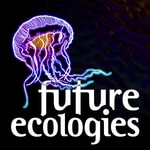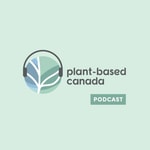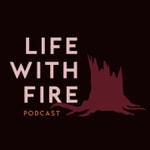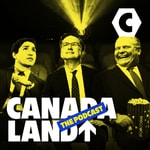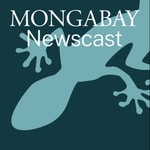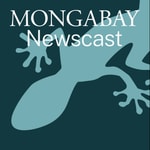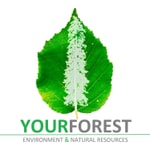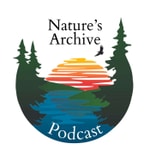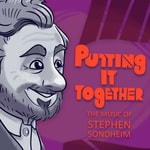Good Fire – Détails, épisodes et analyse
Détails du podcast
Informations techniques et générales issues du flux RSS du podcast.
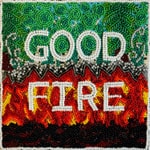
Good Fire
Amy Cardinal Christianson and Matthew Kristoff
Fréquence : 1 épisode/65j. Total Éps: 33

Classements récents
Dernières positions dans les classements Apple Podcasts et Spotify.
Apple Podcasts
🇨🇦 Canada - naturalSciences
30/07/2025#53🇺🇸 États-Unis - naturalSciences
30/07/2025#83🇨🇦 Canada - naturalSciences
29/07/2025#37🇺🇸 États-Unis - naturalSciences
29/07/2025#58🇨🇦 Canada - naturalSciences
28/07/2025#24🇺🇸 États-Unis - naturalSciences
28/07/2025#80🇺🇸 États-Unis - naturalSciences
27/07/2025#67🇺🇸 États-Unis - naturalSciences
26/07/2025#54🇨🇦 Canada - naturalSciences
23/07/2025#92🇫🇷 France - naturalSciences
23/07/2025#89
Spotify
Aucun classement récent disponible
Liens partagés entre épisodes et podcasts
Liens présents dans les descriptions d'épisodes et autres podcasts les utilisant également.
See all- https://www.instagram.com/yourforestpodcast
41 partages
Qualité et score du flux RSS
Évaluation technique de la qualité et de la structure du flux RSS.
See allScore global : 59%
Historique des publications
Répartition mensuelle des publications d'épisodes au fil des années.
Good Fire Season 3 Teaser
Saison 3
mercredi 17 janvier 2024 • Durée
Good Fire Podcast by Amy Cardinal Christianson and Matthew Kristoff
Stories of Indigenous fire stewardship, cultural and social empowerment and environmental integrity
Episode highlight
Join Amy Cardinal Christianson and Matthew Kristoff as they give a sneak peek at what to expect in Good Fire’s third season.
Resources
Canada’s record-breaking wildfires in 2023: A fiery wake-up call
Intentional Fire Podcast by Vikki Preston
Sponsors
The Canadian Partnership for Wildland Fire Science
Quotes
12.20 - 12.35: “We can’t change the weather… and we can’t change the climate at the moment, but there are things that we can do and one of those is changing the fuel that’s available to burn and the vegetation that you can burn… and one of the ways to do that is through good fire.”
Takeaways
Women are the backbone of good fire (01.36)
Amy wants to focus the third season of the Good Fire podcast on matriarchs. After attending an Indigenous Women’s fire training event in the USA, she was inspired to see 30 women come together from different First Nations to deliberate how fire affects their communities. An Elder shared with her that the women in a community direct the men to go out and burn.
Burns, burning and burnout (04.56)
Amy is a Research Scientist with the Canadian Forest Service but has recently been on secondment with Parks Canada as an Indigenous Fire Specialist. This year has seen unprecedented fires across Canada. Canada has depended on help from other countries, and firefighters are feeling burnt out.
15.2 million hectares in Canada burnt this year (08.28)
Amy hopes that practicing good fire will alleviate the strain on firefighting and reduce their risk on the job. She highlighted that years of fire exclusion have led to runaway wildfires.
An opportunity for a reset (13.17)
Amy highlights that even though fires were frequent before this land was colonized, tree rings indicate they were not as intense as they are now. Elder Joe Gilchrist shared with Amy that these wildfires are a good opportunity to reset overgrown forests for cultural burning.
Reducing the requirement of resilience (18.19)
Amy praises how the Chief and Council Little Red River Cree Nation and the community of Fox Lake have responded to the fires by building homes and supporting community members. However, she is saddened by the resilience they have had to show and hopes to see progress in external fire management.
Guest wish list (23.20)
Amy hopes to have Vikki Preston on the podcast, but her community is also impacted by the fire. Her podcast, Intentional Fire invites guests from Vikki’s Nation to talk about how they use good fire.
Indigenous stewardship (24.46)
Amy believes that Indigenous knowledge keepers needn’t seek permission to perform cultural burning on their lands. She pushes for policies and regulations to be re-examined so that land can be cared for in a way that is in line with Indigenous knowledge.
The Abundance Will Be Forever with Victor Steffensen and Ado Webster
Saison 2 · Épisode 10
lundi 19 septembre 2022 • Durée
Good Fire Podcast by Amy Cardinal Christianson and Matthew Kristoff
Stories of Indigenous fire stewardship, cultural empowerment and environmental integrity
The Abundance Will Be Forever with Victor Steffensen and Ado Webster
Episode highlight
In this podcast, Victor Steffensen and Ado Webster reflect on their experiences as Indigenous fire-keepers.
Resources
Fire Country: How Indigenous Fire Management Could Help Save Australia by Victor Steffensen
Looking After Country with Fire: Aboriginal Burning Knowledge With Uncle Kuu
Sponsors
The Canadian Partnership for Wildland Fire Science
Support from:
● California Indian Water Commission
● Firesticks Alliance Indigenous Corporation
Quotes
10.52 - 10.56: “We’re not governed by anyone but ourselves and by our culture and by our country.”
Takeaways
Rediscovering culture, discovering oneself (3.55)
Ado has recently begun working with Firesticks in the capacity of an employee, and loves working in an Aboriginal cultural environment where “the knowledge is safe, the sharing is safe and people are safe”.
For the landscape and the people (9.00)
Ado thrives on the cultural exchange that takes place between Nations as part of his work now, something colonization deprived his community of. He is passionate about helping children access culture freely.
Work that heals (14.40)
Victor notes that working with the country helps liberate Aboriginal peoples from stereotypes that they are not hardworking. Work that heals the land for the future inspires youth to do the right thing to enhance their connection with the land.
“Climate change is mother nature telling us to change” (19.17)
Victor laments that the negative messaging in the media makes us feel helpless against climate change. He brings attention to the disasters humans have lived through, and that this can also be salvaged by “doing the good work”.
When you care for the country, it cares back (28.23)
Ado reassures that cultural burning is safe, which is why many go barefoot for a cultural burn. He feels a sense of oneness with all inhabitants of the land, and disagrees with preferential protective equipment for humans but not for the other animals.
Fire, language and country (33.11)
Ado narrates how Victor demonstrated to Ado’s Nation, his knowledge of the land that applies across different territories. Victor adds that landscapes have many similarities in values, and bringing the country back is the missing piece in reviving cultural knowledge.
Let us do it our way (38.48)
Ado speaks about the National Indigenous Fire Workshop they conducted for nations across Australia, where they did a cultural burn which lasted 13 days. Not having burned due to colonization has changed the landscape, and is causing sickness in the forests.
The whole world gets affected (47.33)
Ado says that knowledge opens up minds with the truth but it makes it more difficult to tolerate the wrong things being done. Everyone was impacted by the large bushfires in Australia, and he feels strongly about people experiencing the benefits of cultural burning.
Send in your comments and feedback to the hosts of this podcast: [email protected] and [email protected].
Cultural Fire Is Back with Bhiamie Williamson
Saison 2 · Épisode 1
lundi 13 juin 2022 • Durée
Hosted by Amy Cardinal Christianson, and Matthew Kristoff. Amy is a Métis woman from Treaty 8 territory, currently living in Treaty 6, and a research scientist with the Canadian Forest Service, Natural Resources Canada. Matthew grew up in Treaty 8 territory and now lives in Treaty 6. He is a forester in the province of Alberta, Canada and the creator of YourForest Podcast.
Episode highlight
In this podcast, Bhiamie Williamson discusses the connection of Indigenous peoples to the land, and how cultural burning is a way to preserve the environment and cultural heritage.
Resources
Strength from perpetual grief: how Aboriginal people experience the bushfire crisis
Royal Commission into National Natural Disaster Arrangements
Sponsors
The Canadian Partnership for Wildland Fire Science
Support from:
● California Indian Water Commission
● Firesticks Alliance Indigenous Corporation
Quotes
12.00 - 12.10: “There is so much trauma in our communities, people have never had the opportunity, I feel, to kind of pick themselves up and dust themselves off from colonization.”
Takeaways
Fire is a shared resource (5.58)
As an Aboriginal child growing up in Australia surrounded by his culture, Bhiamie “always had a love for country”. He studied environmental and political sciences at university, and discovered the benefits of cultural burning.
Land is at the center of healing (11.26)
Bhiamie points out that fire plays an important role in Indigenous healing practices. Cultural burning can also prevent wildfires, thus preventing the trauma of losing ancestral lands.
Sharing the load (19.04)
Bhiamie has written an article that has inspired governments and agencies to provide trauma-informed support to Aboriginal peoples after natural disasters.
The land is a living museum (24.42)
Bhiamie informs that Aboriginal peoples have connections to land, and the animals, trees, stones, and petroglyphs are all part of the cultural heritage.
“The best form of protecting is prevention” (30.22)
Bhiamie recommends engaging Indigenous peoples in emergency management and prevention conversations which can help in high-pressure conditions.
“Think ahead and be happy to be unsettled” (38.37)
Bhiamie comments on the impacts of colonization and “centuries of oppression”, and the need to overturn it.
True reconciliation (46.59)
Bhiamie expresses his preference to have Indigenous peoples design their own emergency management programs across different lands in Australia.
Children of the future (59.19)
A majority of the Aboriginal population is young, which brings up the need to provide educational and developmental support along with family and social support.
“It’s just not good enough to ignore us anymore” (1.02.37)
Bhiamie observes that even when Indigenous peoples are invited to share their opinion, they are marginalized, with tokenized opportunities that contain the impact they can have.
Indigenizing masculinity (1.08.41)
Bhiamie’s Ph.D. research is on Indigenous men and masculinity, exploring masculinity from an Indigenous perspective.
“You can call that decolonization, I just call that common sense” (1.14.13)
In Bhiamie’s opinion, the first step to decolonization is to employ Indigenous peoples in senior roles. Land justice and repossession by Indigenous peoples, as well as cultural burning to manage climate change, are the next steps.
You can get in touch with the hosts of this podcast via email: [email protected] and [email protected].
Season 2 Teaser and How To
lundi 2 mai 2022 • Durée
We're Back - Good Fire Season 2 Teaser
Saison 2
jeudi 2 décembre 2021 • Durée
https://www.canadawildfire.org/
https://www.firesmartcanada.ca/product/blazing-the-trail-celebrating-indigenous-fire-stewardship/#:~:text=Blazing%20the%20Trail%3A%20Celebrating%20Indigenous%20Fire%20Stewardship%20is%20designed%20for,and%20senior%20community%20managers%2Fadministrators.
Cultural Fire in Brazil and Venezuela with Jay Mistry
Saison 1 · Épisode 10
mardi 12 novembre 2019 • Durée
Aboriginal Women and Caring for Country in NSW, Australia with Vanessa Cavanagh
Saison 1 · Épisode 9
lundi 4 novembre 2019 • Durée
Fire Ecology and Indigenous Knowledge with Frank Lake
Saison 1 · Épisode 8
lundi 28 octobre 2019 • Durée
Interior Fire Keepers Workshop in Merritt BC, Canada: Second live recording with Pierre Kruger
Saison 1 · Épisode 7
lundi 21 octobre 2019 • Durée
Fire and Water in California, USA with Don Hankins
Saison 1 · Épisode 6
mardi 15 octobre 2019 • Durée
